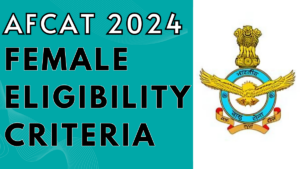The NDA GAT (General Ability Test) is an essential part of the NDA written examination, carrying 600 marks. To score 300+ in this section, candidates need a smart preparation strategy focused on high-weightage and frequently asked topics. Below is a detailed guide on the important topics that can help boost your score.
Important Topics to Score 300 + in NDA GAT
In this article, we are providing Important topics that you must cover in the last 15 days to boost your NDA GAT Score.
NDA GAT: Biology
1. Cell Biology:
– Cell structure and function
– Cell division (mitosis and meiosis)
– Cell transport and signaling
2. Genetics:
– Mendel’s laws of inheritance
– DNA structure and replication
– Gene expression and mutation
3. Evolution:
– Charles Darwin’s theory of evolution
– Natural selection and adaptation
– Human evolution and classification
4. Human Physiology:
– Digestive system
– Circulatory system
– Respiratory system
– Nervous system
5. Plant Biology:
– Photosynthesis and respiration
– Plant structure and function
– Plant growth and development
6. Ecology:
– Ecosystems and biodiversity
– Food chains and food webs
– Environmental conservation
7. Microbiology:
– Types of microorganisms (bacteria, viruses, fungi)
– Microbial growth and control
– Immune system and vaccination
8. Biotechnology:
– Recombinant DNA technology
– Genetic engineering and applications
– Biotechnology in medicine and agriculture
NDA 2 2025 GAT: Geography important Topics
Physical Geography
1. Geomorphology:
– Types of landforms (mountains, plateaus, plains)
– Geological processes (weathering, erosion, deposition)
2. Hydrology:
– Water cycle and water resources
– Rivers, lakes, and wetlands
– Oceanography (tides, waves, currents)
3. Climatology:
– Earth’s climate system and climate change
– Types of climates (tropical, temperate, polar)
– Weather patterns and natural disasters
4. Soil Science:
– Soil formation and types
– Soil erosion and conservation
Human Geography
1. Population Geography:
– Population growth and distribution
– Demographic processes (birth, death, migration)
2. Settlement Geography:
– Types of settlements (rural, urban)
– Urbanization and urban planning
3. Economic Geography:
– Natural resources and their distribution
– Agriculture, industry, and service sectors
4. Political Geography:
– Country boundaries and political systems
– International organizations and global issues
Indian Geography
1. Physical Features:
– Mountains (Himalayas, Eastern Ghats)
– Rivers (Ganga, Brahmaputra, Indus)
– Deserts (Thar, Cold Desert)
2. Climate and Soil:
– Climate zones in India
– Soil types and agricultural regions
3. Economic Development:
– Agriculture and irrigation
– Industry and mineral resources
4. Regional Development:
– Regional disparities and development initiatives
Some specific topics that have been asked in previous NDA exams include:
– India’s strategic location and borders
– Major ports and transportation networks
– Environmental issues (deforestation, pollution, conservation)
– Disaster management and mitigation
Important History Topics for NDA GAT 2025
Ancient India
1. Indus Valley Civilization
2. Vedic Period and Aryans
3. Mauryan Empire (Chandragupta, Ashoka)
4. Gupta Empire and post-Gupta period
Medieval India
1. Delhi Sultanate and Mughal Empire (Babur, Akbar, Aurangzeb)
2. Vijayanagara Empire and Bahmani Kingdom
3. Bhakti Movement and Sufism
Modern India
1. British East India Company and British Raj
2. Indian National Movement (1857, Non-Cooperation, Quit India)
3. Mahatma Gandhi and other national leaders
4. Partition and Independence (1947)
World History
1. Ancient Civilizations (Egypt, Greece, Rome)
2. World Wars I and II
3. Cold War and its impact
4. Major revolutions (French, Russian, Chinese)
Indian Freedom Struggle
1. Early nationalist movements (1885-1905)
2. Swadeshi Movement and Home Rule League
3. Non-Cooperation and Civil Disobedience
4. Quit India Movement and Azad Hind Fauj
Some specific topics that have been asked in previous NDA exams include:
– Harappan civilization’s achievements
– Ashoka’s edicts and their significance
– Akbar’s administrative reforms
– Gandhi’s philosophy and methods
– Important battles (Panipat, Plassey, Buxar)
– Indian kingdoms (Rajputs, Marathas, Sikhs)
NDA Chemistry most important Topics
Inorganic Chemistry
1. Atomic Structure:
– Electron configuration
– Periodic Table
2. Chemical Bonding:
– Types of bonds (ionic, covalent, metallic)
– Lewis structures
3. Acids and Bases:
– Arrhenius, Bronsted-Lowry, and Lewis definitions
– pH and pOH calculations
4. Redox Reactions:
– Oxidation numbers
– Balancing equations
5. Main Group Elements:
– Alkali metals (Group 1)
– Alkaline earth metals (Group 2)
– Halogens (Group 17)
Organic Chemistry
1. Hydrocarbons:
– Alkanes, alkenes, alkynes
– Isomerism and nomenclature
2. Functional Groups:
– Alcohols, phenols, ethers
– Aldehydes, ketones, carboxylic acids
3. Organic Reactions:
– Substitution, elimination, addition
– Hydrolysis, condensation, polymerization
Physical Chemistry
1. Thermodynamics:
– Laws of thermodynamics
– Energy, work, and heat
2. Kinetics:
– Rates of reactions
– Order and molecularity
3. Equilibrium:
– Chemical equilibrium
– Le Chatelier’s principle
General Chemistry
1. Stoichiometry:
– Mole concept
– Empirical and molecular formulas
2. Solutions:
– Types of solutions (saturated, unsaturated)
– Concentration units (molarity, molality)
3. Chemical Analysis:
– Qualitative and quantitative analysis
– Chromatography and spectroscopy
Some specific topics that have been asked in previous NDA exams include:
– Atomic structure and periodic trends
– Chemical bonding and molecular structure
– Acid-base titrations and pH calculations
– Redox reactions and electrochemistry
– Organic synthesis and reaction mechanisms
– Thermodynamic principles and applications
Most Important Topics for NDA Polity
Indian Constitution
1. Preamble and its significance
2. Fundamental Rights (FRs) and Fundamental Duties (FDs)
3. Directive Principles of State Policy (DPSPs)
4. Union and State Governments (Executive, Legislature, Judiciary)
5. Parliament and State Legislatures (structure, functions, powers)
Central Government
1. President (election, powers, impeachment)
2. Prime Minister (appointment, powers, role)
3. Council of Ministers (formation, responsibilities)
4. Cabinet Committees (types, functions)
State Government
1. Governor (appointment, powers, role)
2. Chief Minister (appointment, powers, role)
3. State Council of Ministers (formation, responsibilities)
Judiciary
1. Supreme Court (structure, powers, jurisdiction)
2. High Courts (structure, powers, jurisdiction)
3. Subordinate Courts (structure, powers, jurisdiction)
Local Self-Government
1. Panchayati Raj (rural local government)
2. Municipalities (urban local government)
Union Territories and Special Areas
1. Administration of Union Territories
2. Special provisions for certain states (e.g., J&K, Nagaland)
Constitutional Bodies
1. Election Commission (functions, powers)
2. Union Public Service Commission (functions, powers)
3. Comptroller and Auditor General (functions, powers)
Amendments and Reforms
1. Procedure for constitutional amendments
2. Important amendments (e.g., 42nd, 44th, 73rd)
3. Reforms in Indian polity (e.g., electoral reforms, judicial reforms)
Some specific topics that have been asked in previous NDA exams include:
– Salient features of the Indian Constitution
– Fundamental Rights and their limitations
– Powers and functions of the President and Prime Minister
– Structure and functions of the Parliament and State Legislatures
– Judicial review and activism
– Local self-government and decentralization
NDA GAT Physics Topics
Mechanics
1. Kinematics (motion, velocity, acceleration)
2. Dynamics (forces, Newton’s laws)
3. Work, Energy, and Power
4. Rotational Motion (torque, moment of inertia)
5. Gravitation (law of gravitation, gravitational potential)
Thermodynamics
1. Thermodynamic Systems (types, properties)
2. Laws of Thermodynamics (Zeroth, First, Second, Third)
3. Thermodynamic Processes (isothermal, adiabatic, cyclic)
4. Heat Transfer (conduction, convection, radiation)
Electromagnetism
1. Electric Charges and Fields (Coulomb’s law, electric field)
2. Electric Potential and Capacitance
3. Current Electricity (resistance, Ohm’s law)
4. Magnetism (magnetic fields, forces, induction)
5. Electromagnetic Induction (Faraday’s law, Lenz’s law)
Optics
1. Reflection and Refraction (laws, total internal reflection)
2. Lenses and Mirrors (types, image formation)
3. Wave Optics (interference, diffraction, polarization)
4. Optical Instruments (microscope, telescope, spectrometer)
Modern Physics
1. Atomic Structure (Rutherford’s model, Bohr’s model)
2. Nuclear Physics (radioactivity, nuclear reactions)
3. Relativity (special and general relativity)
4. Quantum Mechanics (wave-particle duality, uncertainty principle)
Some specific topics that have been asked in previous NDA exams include:
– Motion in one and two dimensions
– Newton’s laws and their applications
– Work, energy, and power
– Rotational motion and gravitation
– Thermodynamic processes and heat transfer
– Electric circuits and magnetism
– Optical instruments and wave optics
– Atomic structure and nuclear physics
Important Current Affairs for NDA
National Current Affairs
1. Government schemes and initiatives (e.g., Ayushman Bharat, Make in India)
2. Economic developments (e.g., budget, GDP growth, inflation)
3. Political developments (e.g., elections, cabinet reshuffles)
4. Social issues (e.g., education, healthcare, women’s empowerment)
5. Defense and security (e.g., military modernization, border disputes)
International Current Affairs
1. Global economic trends (e.g., trade wars, Brexit)
2. International relations (e.g., India’s relations with China, Pakistan, US)
3. Global security issues (e.g., terrorism, cybersecurity)
4. Environmental issues (e.g., climate change, sustainable development)
5. International organizations (e.g., UN, IMF, WHO)
Sports and Awards
1. National and international sports events (e.g., Olympics, Commonwealth Games)
2. Awards and honors (e.g., Bharat Ratna, Padma awards)
Science and Technology
1. Recent scientific discoveries and breakthroughs
2. Emerging technologies (e.g., AI, blockchain, 5G)
3. Space exploration and astronomy
Environment and Ecology
1. Environmental conservation and sustainability
2. Climate change and its impacts
3. Wildlife and biodiversity conservation
Some specific topics that have been asked in previous NDA exams include:
– Government initiatives like Swachh Bharat and Digital India
– Economic developments like demonetization and GST
– Political developments like the Citizenship Amendment Act
– International relations like the Indo-Pacific strategy
– Global security issues like terrorism and cybersecurity
– Sports events like the Olympics and Asian Games
– Awards like the Nobel Prize and Bharat Ratna
– Scientific discoveries like gravitational waves and gene editing
– Emerging technologies like AI and blockchain




 CDS Exam Pattern 2025, OTA, IMA, INA and...
CDS Exam Pattern 2025, OTA, IMA, INA and...
 Indian Coast Guard Navik Selection Proce...
Indian Coast Guard Navik Selection Proce...
 AFCAT Females Eligibility Criteria, Know...
AFCAT Females Eligibility Criteria, Know...





